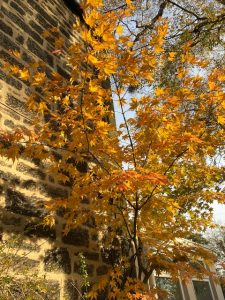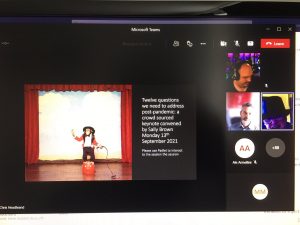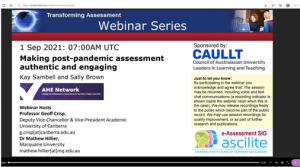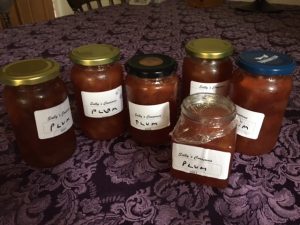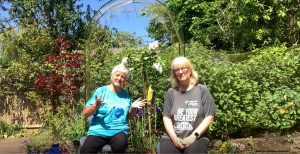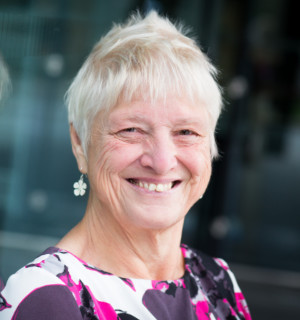Highlights of AHE, Horoscopes, Huddersfield and Happy Holiday
3 Jul
Today, as the penultimate working session for my academic year, I have been contributing to a session at Edge Hill University as part of the annual Solstice Conference and sessions of CPD and staff development, with guest inputs from Kay Sambell, Phil Race and Peter Hartley. Our topic was using a crystal ball to look into the future: “What’s going on with HE assessment and feedback right now?”. The slides we used are here. Solstice-1-July-2022pm.pptx (4657 downloads) I identified 12 issues I’ve been seeing, particularly in my work with Kay over the last two years in our global virtual sessions, which have included working in Chile, Ireland, Hong Kong, New Zealand, Australia and Italy as well as in 20+ HEIs in the UK. Our thinking was substantially expanded last week at the excellent Assessment in Higher Education Conference in Manchester https://ahenetwork.org/ If you’ve never been to @aheconference, do have a look at the tweets #aheconference2022 and consider coming along to next year’s event in June.
We did our first face-to-face event on Wednesday at Huddersfield University contributing to their annual T&L conference and it was great to interact with people in a live context again. They have some fabulous new buildings since I last went there.
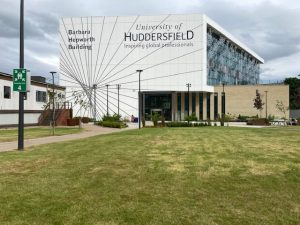
Next week on 5th July, Phil and I are hosting an afternoon tea for National Teaching Fellows attending the AdvanceHE conference and some other local HE practitioners: contact me if you are local and want to see if we have a spare place so you can join us.
Meanwhile, Kay and I are already getting busy with plans for our virtual workshops: it looks as if our hot topics are likely to be assessing students in groups, designing and managing feedback so as to contribute to self-efficacy and make the process integral to learning and actively designing assessment for learning from the outset.
I hope this summer will be productive and fun: but also with plenty of time to regroup, take a breath and appreciate what we have to enjoy.

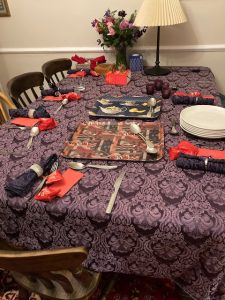 Today is Chinese New Year and it’s also my 72nd birthday, which I am thoroughly enjoying. It’s a time for reflection and looking forwards and backwards over a blessed life.
Today is Chinese New Year and it’s also my 72nd birthday, which I am thoroughly enjoying. It’s a time for reflection and looking forwards and backwards over a blessed life.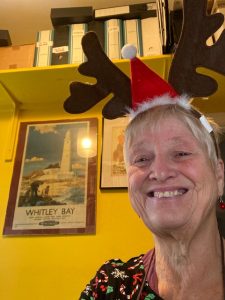 It’s been another tough year in the world of teaching and learning in higher education, so to cheer myself and others up, in the spirit of appreciative enquiry, I have compiled this collection of some of the positive benefits of teaching and assessment in higher education that have accrued as we’ve had to pivot fast into new ways of working.
It’s been another tough year in the world of teaching and learning in higher education, so to cheer myself and others up, in the spirit of appreciative enquiry, I have compiled this collection of some of the positive benefits of teaching and assessment in higher education that have accrued as we’ve had to pivot fast into new ways of working.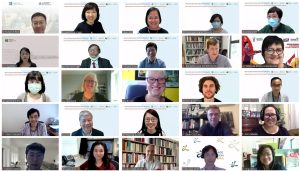 It continues to be a lovely Autumn in North Tyneside, which cheers me up as it defers the worst of the winter weather! And it also cheers me up that we can here present a fourth compendium of great authentic assessment ideas in a special Hong Kong Edition from colleagues at the Education University of Hong Kong and Hong Kong Baptist University at HKSAR, with whom Kay Sambell and I have been working this year (see the picture of a screenshot from our latest webinar with them in August). The diverse disciplines represented here include Language Studies, English, Education, Multiculturalism, Finance, Chinese Medicine, Multimedia Journalism, Music, Forensic analytical chemistry, Medical Ethics and Visual Arts practice. It’s exciting to see how our ideas are translated into practice and used globally: we are really grateful to Professor Siu Cheung Kong of the Education University of Hong Kong and Dr Theresa FN Kwong of the Hong Kong Baptist University for helping us create this original and very useful set of resources.
It continues to be a lovely Autumn in North Tyneside, which cheers me up as it defers the worst of the winter weather! And it also cheers me up that we can here present a fourth compendium of great authentic assessment ideas in a special Hong Kong Edition from colleagues at the Education University of Hong Kong and Hong Kong Baptist University at HKSAR, with whom Kay Sambell and I have been working this year (see the picture of a screenshot from our latest webinar with them in August). The diverse disciplines represented here include Language Studies, English, Education, Multiculturalism, Finance, Chinese Medicine, Multimedia Journalism, Music, Forensic analytical chemistry, Medical Ethics and Visual Arts practice. It’s exciting to see how our ideas are translated into practice and used globally: we are really grateful to Professor Siu Cheung Kong of the Education University of Hong Kong and Dr Theresa FN Kwong of the Hong Kong Baptist University for helping us create this original and very useful set of resources. 